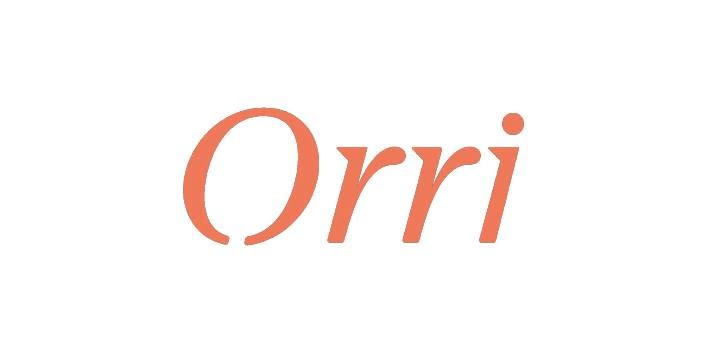Orri Eating Disorder Clinic - TREATMENT REVIEWS
Orri Eating Disorder Clinic is among the clinics in London, United Kingdom that treat various eating disorders. Distinguished as the sole CQC-rated ‘Outstanding’ clinic in the UK, Orri sets the standard for comprehensive and compassionate treatment.
The clinic provides day treatment programs and outpatient services designed to adapt and integrate seamlessly into the lives of clients seeking assistance. What sets Orri apart is their commitment to collaborative care, underpinned by expert knowledge, evidence-based methodologies, and a dedication to innovation, all woven with threads of kindness and compassion.
Understanding the challenges inherent in recovery, Orri emphasizes a supportive approach, walking hand-in-hand with clients to make the seemingly impossible path to recovery achievable.
Holistic Treatment Approach – Orri Eating Disorder Clinic’s Spectrum of Care
Orri Eating Disorder Clinic extends its expertise and support to individuals struggling with various conditions, recognizing the complexity and nuances within each disorder. Some of the conditions treated at the facility are:
Anorexia Nervosa
Anorexia nervosa, characterized by severe restriction of food intake and an obsessive fear of gaining weight, finds comprehensive treatment within Orri’s walls. Recognizing the physical, psychological, and emotional toll of anorexia, the clinic tailors its interventions to address these multifaceted aspects, aiming to restore a healthy relationship with food and self-image.
Bulimia Nervosa
Bulimia nervosa, marked by cycles of binge eating followed by compensatory behaviors like purging, poses unique challenges. Orri’s approach involves evidence-based therapies, fostering behavioral changes, and cultivating coping mechanisms to break this detrimental cycle and reestablish a balanced approach to eating.
Binge Eating Disorder
Binge eating disorder, characterized by recurrent episodes of uncontrollable eating without compensatory behaviors, receives specialized attention at Orri. The clinic addresses the underlying triggers through therapies and interventions, guiding individuals toward healthier eating patterns and a more harmonious relationship with food.
Avoidant Restrictive Food Intake Disorder (AFRID)
Avoidant restrictive food intake disorder, often misunderstood, involves limited food intake due to sensory issues, lack of interest, or fear of aversive consequences. Orri recognizes the distinct nature of ARFID and provides customized interventions, focusing on expanding food variety and addressing underlying anxieties to support nutritional rehabilitation.
Orthorexia
Orri also confronts the challenges posed by orthorexia, an obsession with healthy eating that can lead to severe dietary restrictions and distress. By redefining healthy eating habits and promoting a balanced approach to nutrition, the clinic helps individuals overcome the rigid and often harmful behaviors associated with orthorexia.
Anorexia Athletica
Anorexia athletica, a condition prevalent among athletes where excessive exercise accompanies restrictive eating patterns, is another area of expertise for Orri. Understanding the intricate relationship between athletic performance and mental health, the clinic devises strategies to recalibrate individuals’ perceptions of health and fitness, creating a sustainable balance.
How Does Orri London Treat Eating Disorders – Healing Process At The Clinic
The treatment process at Orri Clinic involves various steps that address various aspects of an eating disorder. Although treatment is personalized, a general treatment plan includes many steps, such as:
Evaluation and Diagnosis
Treatment at Orri begins with a thorough assessment conducted by a multidisciplinary team comprising psychologists, psychiatrists, dietitians, and other specialists. The step involves understanding the individual’s medical history, physical health, psychological state, eating behaviors, and emotional triggers.
Tailored Treatment Plan
Following the assessment, a personalized treatment plan is crafted, integrating the needs and challenges of the individual. Orri prioritizes a collaborative approach, involving the client in the decision-making process to ensure their treatment aligns with their goals and preferences.
Nutritional Counseling and Restoration
Orri’s approach emphasizes nutritional rehabilitation led by experienced dietitians. Through individualized meal plans, nutritional education, and guidance, clients are supported in restoring a healthy relationship with food. Nutritional counseling addresses misconceptions, fears, and anxieties surrounding eating.
Therapeutic Interventions
Various therapeutic modalities, including cognitive-behavioral therapy (CBT), dialectical behavior therapy (DBT), and acceptance and commitment therapy (ACT), form the core of Orri’s treatment process. These evidence-based approaches help individuals challenge destructive thoughts, behaviors, and emotions related to their eating disorder.
Medical Monitoring and Support
Continuous medical monitoring ensures the client’s physical health remains stable throughout the treatment. Orri maintains close collaboration with medical professionals to address any underlying medical concerns or complications arising from the eating disorder.
Psychoeducation and Skills Development
Equipping clients with coping mechanisms, stress management techniques, and emotional regulation skills is integral to Orri’s approach. Psychoeducation sessions provide insight into the nature of eating disorders, helping individuals comprehend their condition and the path to recovery.
Exposure and Behavioral Exercises: For disorders involving specific food aversions or anxieties, exposure therapy is employed to gradually confront and overcome these fears in a controlled and supportive environment. Behavioral exercises help reshape attitudes and behaviors towards food and body image.
Family and Support Integration
Orri recognizes the importance of involving family and support networks in treatment. Family therapy or involvement in support groups facilitates understanding, communication, and a conducive environment for recovery beyond the clinic.
Continued Care and Aftercare Planning
As clients progress through their treatment, Orri focuses on developing a comprehensive aftercare plan to ensure sustained progress post-discharge. It may include ongoing therapy, nutritional guidance, and support groups to maintain momentum and prevent relapse.
Who Can Join Orri Eating Disorder Clinic For Treatment?
Orri Eating Disorder Clinic treats individuals from diverse backgrounds who are seeking specialized and compassionate care for eating disorders. People who can join the clinic for treatment include the following:
- Adults and Adolescents: Orri recognizes that eating disorders can affect individuals of all ages, and as such, their treatment programs are open to both adults and adolescents. The clinic understands each age group’s unique challenges and customizes interventions to address the developmental and psychological nuances of different life stages.
- Varied Eating Disorders: Orri’s expertise extends across the spectrum of eating disorders, including those mentioned above. Whether an individual is struggling with severe restriction, compulsive overeating, or a complex interplay of disordered eating behaviors, Orri’s multidisciplinary team is equipped to provide specialized care.
- Individuals with Co-occurring Conditions: Orri understands that eating disorders often coexist with other mental health conditions such as anxiety, depression, or trauma. The clinic’s holistic approach addresses these co-occurring factors, recognizing the interconnected nature of mental health. By providing comprehensive and integrated care, Orri ensures that individuals receive support for their mental health needs.
FAQs
How long is a treatment plan at Orri?
Treatment plans at Orri are highly individualized and personalized to meet the needs of each client. The duration of treatment can vary significantly based on several factors, including the severity of the eating disorder, the individual’s progress, and their circumstances. Typically, treatment plans can range from several weeks to several months, with ongoing assessments to ensure the effectiveness of the program and the client’s progress.
Which payment options does Orri Eating Disorder Clinic offer?
Orri aims to make their specialized treatment accessible. They offer various payment options to accommodate different financial situations. These may include private payment options, health insurance coverage (where applicable and accepted), and potential financial assistance programs. The clinic’s financial advisors work closely with individuals to explore suitable payment options and navigate insurance coverage, making the treatment process seamless.
Is a professional referral required for admission to Orri?
While a professional referral can streamline the admission process, it is not a mandatory requirement for admission. Individuals seeking treatment can directly contact Orri to initiate the intake process. The clinic has a team of intake coordinators who guide potential clients through the initial steps, including assessments and consultations to determine the appropriate treatment plan.
Orri Eating Disorder Clinic- Cost/Prices, Center/Clinic/Retreat/Resort Facilities, Inpatient Treatment Program Services
- Title Orri Eating Disorder Clinic
- Treatment Program Mental Health / Eating Disorders / Bulimia Nervosa / Anorexia Nervosa / Binge Eating Disorder
- Location Europe/ London/ United Kingdom
Orri Eating Disorder Clinic Contact
- E-mail askorri@orri-uk.com
- Website https://www.orri-uk.com/
- Address 80-81 Wimpole St, London W1G 9RE, United Kingdom

 Orri Eating Disorder Clinic
Orri Eating Disorder Clinic



